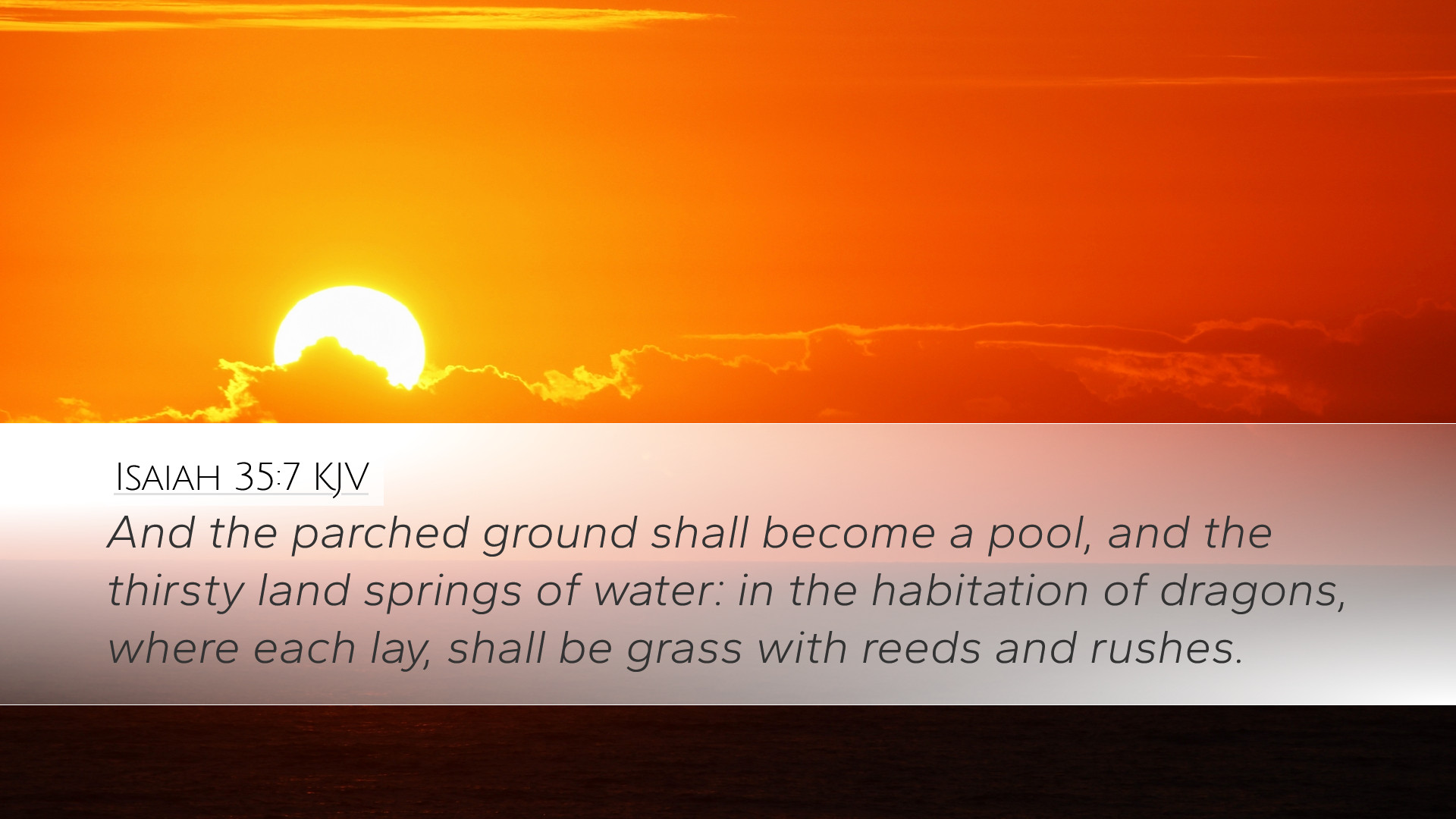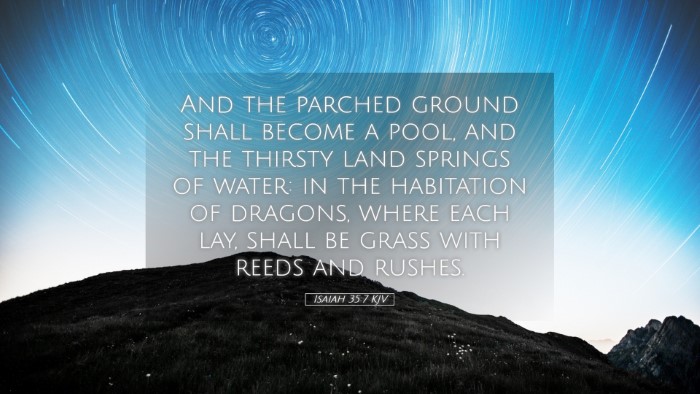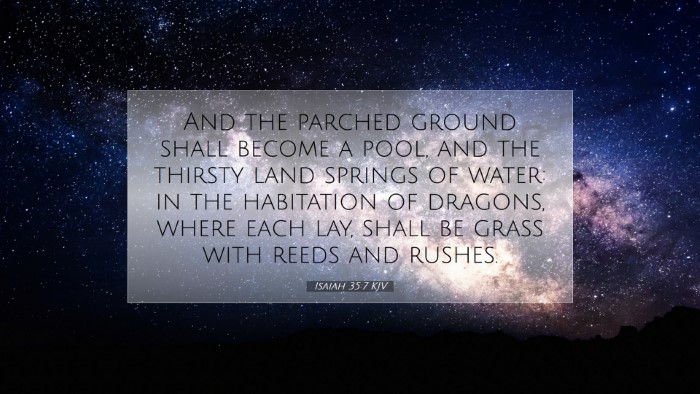Commentary on Isaiah 35:7
Verse: "And the parched ground shall become a pool, and the thirsty land springs of water: in the habitation of jackals, where each lay, shall be grass with reeds and rushes."
Contextual Background
The Book of Isaiah is a prophetic text that expresses themes of judgment, comfort, and restoration. In Chapter 35, the prophet shifts focus from the previous judgments to a vision of hope, restoration, and divine grace. The imagery used in this chapter paints a vivid picture of the transformation of desolation into abundance, symbolic of God's deliverance and the coming of His kingdom.
Interpretation and Themes
This verse serves as a pivotal statement regarding the power of God to restore life and vitality to barren lands. The "parched ground" and "thirsty land" are reflective of not only physical drought but also spiritual barrenness. The promise of "pools" and "springs" indicates a profound change, a reversal of the current state of desolation.
1. Symbolism of Water
Matthew Henry notes that in the biblical context, water often symbolizes life, joy, and the presence of God. Here, the water transforming the arid land illustrates the refreshing work of God's Spirit in revitalizing the spiritual lives of His people. It also represents the blessings of salvation that God offers, where spiritual dryness is replaced with the abundance of grace.
2. Transformation of the Environment
Albert Barnes emphasizes the physical transformation described—“the habitation of jackals,” once desolate, will teem with life. This suggests a complete metamorphosis from desolation to fertility, indicative of God’s ability to change circumstances. This transformation is not just literal but serves as a metaphor for the renewal of nations and peoples oppressed by sin and suffering.
3. Theological Implications
Adam Clarke reflects on the theological significance of this verse, interpreting the “grass with reeds and rushes” as a depiction of God's providence and care. Just as He provides for nature’s needs, He assures spiritual sustenance for His people during their times of need. The mention of jackals could also symbolize the ancients regarded as enemies or desolators, further emphasizing that God can turn the enemy's domain into a haven of life.
4. Applications for Believers
This verse invites believers not only to anticipate physical restoration but also to embrace the transformative power of the Gospel in their lives. It speaks to those who may be experiencing spiritual drought or personal challenges, reminding them that God can bring renewal and restoration, regardless of the circumstances they face.
Practical Insights for Ministry
As pastors and leaders in the church reflect upon Isaiah 35:7, several practical insights emerge that can enrich preaching and teaching:
- Emphasizing God's Power: Reiterate that God has the power to renew and transform lives. Just as He can turn parched ground into a pool, He can bring healing to broken relationships and restore hope.
- Encouraging Desperate Hearts: Offer assurance to those feeling spiritually dry or desolate. Encourage them to seek the living water that only God can provide (referencing John 4:14).
- Promoting Community Renewal: Discuss how this transformation isn't only personal but communal. Envision what renewal would look like in church communities and neighborhoods, and encourage action toward making that vision a reality.
- Utilizing Creation Imagery: Use the vivid imagery of nature found in this passage to illustrate God's hope and potential for growth. Encourage congregations to look for signs of God's work in nature and community.
Conclusion
Isaiah 35:7 represents a profound promise of restoration and hope. The imagery of the parched ground becoming a pool speaks of God's transformative power over both nature and the human spirit. As this commentary has explored through the insights of notable biblical scholars, we see an invitation for believers to claim the promises of God in every area of life. Pastors, students, and theologians alike can find rich theology and practical application in this verse, encouraging an understanding that even in the direst circumstances, God's renewing grace is always within reach.


